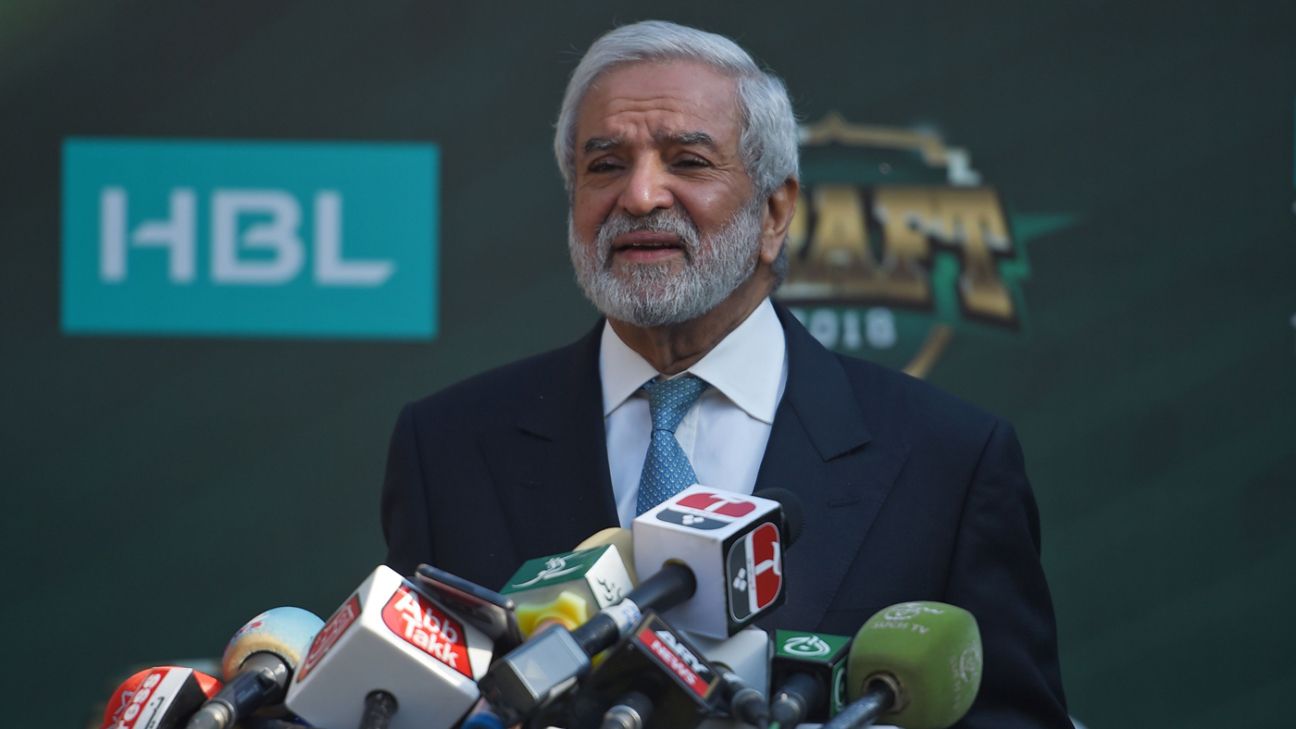Three years into its existence and with none of the teams close to making profits, PSL franchises are urging the PCB to revisit its revenue-share model ahead of the fourth season. One of their main demands is to be exempted from government taxes, at least until they break even on their investments.
Five franchises – the sixth one, formerly Multan Sultans, is currently without ownership – met with the PCB a day after the draft in Islamabad, where they were unanimous in their concerns about the league’s financial model. A three-member committee including Javed Afridi, owner of Peshawar Zalmi, Salman Iqbal of Karachi Kings and Ehsan Mani, the PCB chairman, has been formed to find ways to make the PSL more “sustainable” and gain tax breaks.
The federal government as well the provincial government of Punjab have asked the PCB to make an official request for exemption in writing, one which will be put in front of the cabinet for a decision. Should they decide not to offer any relief, ESPNcricinfo understands the PCB could register the PSL in Gilgit-Baltistan, a northern province where they could take advantage of laxer taxation. Afridi revealed that registering the league as an offshore company is also an option.
Over the last couple of seasons, franchises have raised concerns about the amount of tax they have paid on top of their franchise fees and other operational expenses. The first set of commercial and sponsorship rights deals the PSL signed up when it launched have now ended, and with enhanced deals now being inked in, as well as the scare caused by Multan Sultans’s financial meltdown, the remaining five have sensed this is the time to push for a greater slice of the pie.
“Especially after Multan Sultans, we all are concerned about the league’s sustainability,” Afridi told ESPNcricinfo. “All eyes are on the PSL because this league is going to pave the way for other sports in the country. But with this model we are afraid we cannot go any further.
“All five franchises came in together in the national spirit and spent a lot of money for the best interest of the country but for how long are we going to bear the losses? We are actually sucking money from our parent companies and are not even close to breaking even. We need a roadmap with a model which is more sustainable.
“There should be parameters that should be laid down with tax exemption for sports because in future we will also have a hockey league and there should be a national sports policy to encourage investors to come forward. We have been paying 16% sales tax to the provincial government and 10% as witholding tax to the federal government without making profits. We met with finance minister Asad Umar last week and he seems to be very passionate about the game. They sought some time to revert back to us and we are hopeful this year there should be a permanent resolution to our problems.”
The financial model adopted by the PCB in 2016 offers equal shares from a central revenue pool to all franchises, despite the difference in franchise fees. The two most expensive franchises – Karachi Kings and Lahore Qalandars, sold for USD 2.6 million and USD 2.5 million respectively per year – have argued that the revenue shares should be on a pro rata model, reflecting the expense of the franchise fee. Quetta Gladiators pay USD 1.1 million per year as their franchise fee, as comparison. In theory, however, both Karachi and Lahore should have greater commercial opportunities, based as they are in the two biggest cities in the country.
The five franchises have also asked for an increase in their revenue shares. Afridi confirmed that each of the five franchises are operating at losses since the inaugural edition in 2016. For the first three years, the PCB put 85% of the PSL’s media rights revenue, 50% of the title sponsorship rights money, and 50-60% of the gate money into a central pool, which was then shared out equally among the franchises.
Another bone of contention is tied to the falling value of the Pakistani rupee against the US dollar. According to the agreements signed in 2016, franchise fees have to be paid in dollars – at the time it was signed, the exhange rate was PKR 105 to the dollar. Over the last year, as Pakistan’s economy has slowed down, it has shot up to PKR 134. The franchises want to peg the rate or pay in Pakistani rupees at the same rate when the contracts were signed.
In 2015, the PCB had sold the first five PSL franchises for USD 93 million for a ten-year period. Karachi was the most expensive, with the ARY media group shelling out USD 26 million for ownership. Lahore was sold for USD 25 million, Peshawar for USD 16 million, Islamabad for USD 15 million and Quetta for USD 11 million.
PCB’s new title rights deal with HBL, at USD 14.3 million, is nearly three times bigger than the last deal in 2015. But the renewal is pegged at the same dollar rate signed three years ago, an option not offered to franchises.
